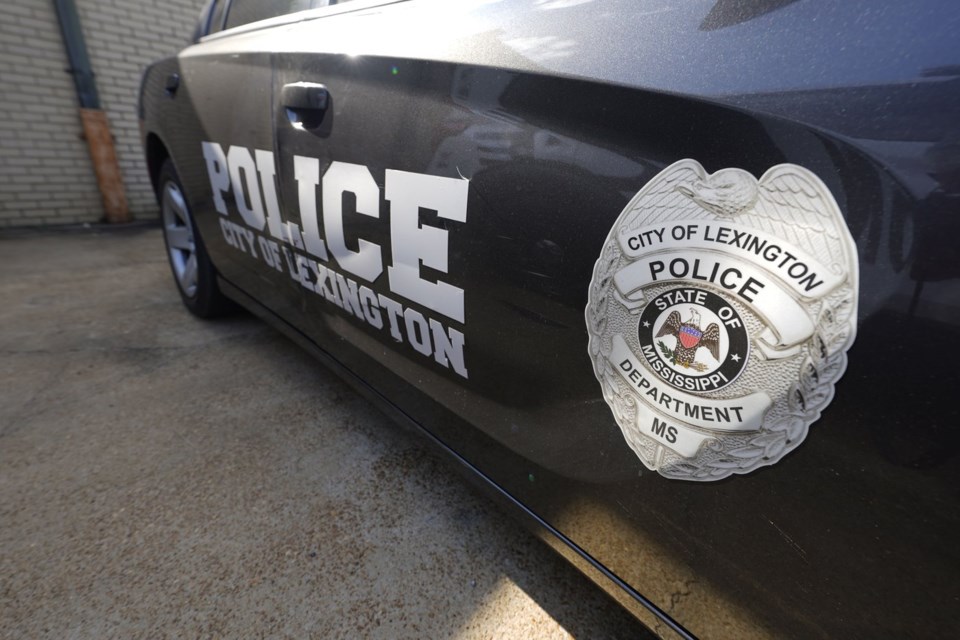WASHINGTON (AP) — Police in a majority Black Mississippi city discriminate against Black people, use excessive force and retaliate against its critics, the Justice Department said Thursday in a scathing report detailing findings of an investigation into civil rights abuses.
The Lexington Police Department “has created a system where officers can relentlessly violate the law" in one of the poorest counties in America, according to the Justice Department. Investigators found that police also sexually harassed women and kept people behind bars for minor offenses because they couldn't afford to pay fines.
“Today’s findings show that the Lexington Police Department abandoned its sacred position of trust in the community by routinely violating the constitutional rights of those it was sworn to protect,” Attorney General Merrick Garland said in an emailed statement.
A Lexington Police Department staff member who answered a phone call seeking comment said Police Chief Charles Henderson was not immediately available for an interview.
The Justice Department found police routinely arrested people for low-level violations and then left them to languish behind bars until they could come up with the money to pay a fine.
One man was jailed for four days because he refilled a cup of coffee at a gas station while only paying for one cup. Another woman was arrested and chained to a bench at a police station for parking in a space reserved for people with disabilities, according to the report. Another officer told a 60-year-old Black woman that she had to pay an old $90 fine to avoid jail.
“You better find some money, or you’re going to jail," the officer said, according to the report.
Lexington residents owe police $1.7 million in outstanding fines, and the city court has issued bench warrants seeking the arrest of more than 650 people — roughly half of the city’s population — because of unpaid fines, Assistant Attorney General Kristen Clarke told reporters.
“In America, being poor is not a crime. But in Lexington, their practices punish people for poverty,” Clarke said.
Investigators also found that officers used Tasers like a “cattle-prod” to punish people and punch or kick people who are unarmed and handcuffed. In one case, an officer kicked an unarmed Black man so hard that he wet himself, according to the report. The officer told the dispatcher: “I didn't give two (expletive) about his civil rights," the report says.
"Black people bear the brunt of the Lexington police department’s illegal conduct,” Clarke said.
The Justice Department’s investigation and report followed the filing of a federal lawsuit in 2022 by a group of residents who accused the police department of “terrorizing” residents through false arrests, intimidation and other abuses.
It also follows the June 2023 arrest of Jill Collen Jefferson, the president of JULIAN, the civil rights organization that filed the federal lawsuit on behalf of residents. The organization had previously obtained an audio recording of then-Lexington Police Chief Sam Dobbins using racial slurs and talking about how many people he had killed in the line of duty. Dobbins was later fired.
In June, Jefferson was arrested after filming a traffic stop conducted by Lexington police officers. The arrest came nine days after Clarke had traveled to Lexington to meet with community members about alleged police misconduct. Federal prosecutors have said the probe into Lexington is part of a broader effort to crack down on unconstitutional policing at small and mid-size police departments and in underserved regions throughout the Deep South.
"Gone are the days when rural isolation and remoteness could conceal the injustice of unconstitutional policing," said Todd Gee, U.S. attorney for the Southern District of Mississippi. Addressing other police departments in the country, Gee said: “Make changes now if your agency is policing in these same unlawful ways.”
Alanna Durkin Richer And Michael Goldberg, The Associated Press



